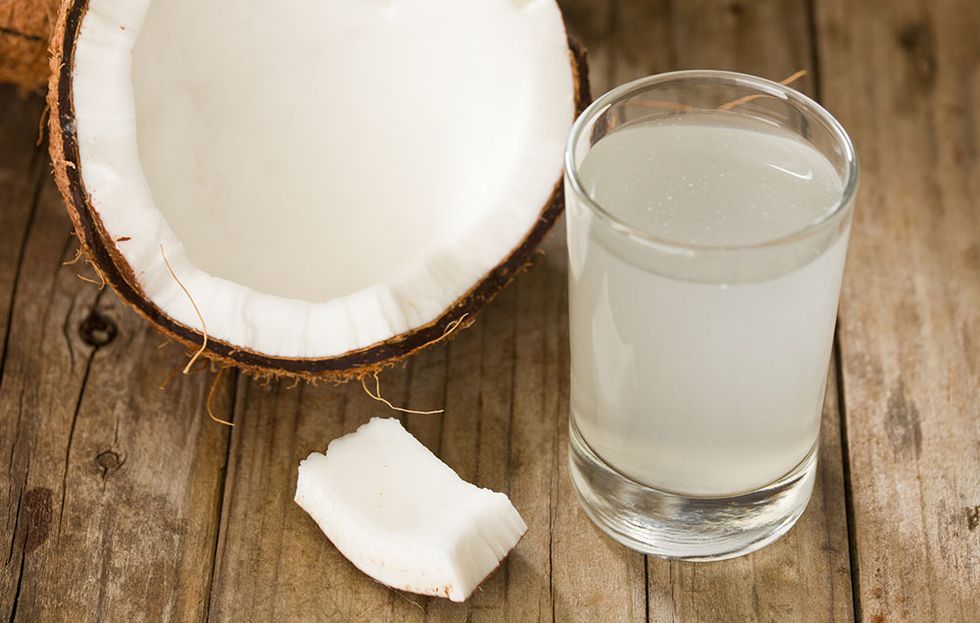Coconut water is literally everywhere, from the smoothie bowls on your Instagram feed to the aisles of the grocery store. It’s almost as ubiquitous as water. But does it deserve to be?
“It’s trendy,” says Lauren Richer, R.D. “There’s the idea that coconuts are god’s given gift to the Earth, everything from the meat to the water to the oil.”
People swear by coconut water as a workout recovery drink, but there’s also some evidence showing that coconut water helps lower blood sugar and cholesterol, and that it might even play a role in dental health.
Moment of truth: Is coconut water good for you?
Coconut water nutrition
First off, here’s the nutritional breakdown for one cup of unsweetened coconut water:
- Calories: 44
- Fat: 0 g
- Protein: 0.5 g
- Carbohydrate: 10.4 g
- Sugar: 9.6 g
Some points in coconut water’s favor: It has some important nutrients like potassium(404 mg per cup, almost as much as what you’ll find in a banana), vitamin C (24 mg, around 30 percent of your recommended daily value), and magnesium (15 mg, roughly 5 percent of your daily recommended intake).
The downside: that sugar content. Even though this is unsweetened water, and these are natural sugars, 9.6 grams is over a third of your daily maximum amount of sugar. Yikes.
The calories are also somewhat problematic, according to Richer. Sure, 44 calories seems pretty small. But Richer says if you’re going to drink it in place of water (which has, you know, zero calories), you should minimize your caloric intake throughout the day to compensate.
That’s especially important given that coconut water is often sold in packages bigger than a one-cup serving. For example, a 330 ml carton of Vita Coco is billed as a serving, but is greater than a cup—and contains 59 calories and 15 grams of sugar. Once you’re sipping, it might be hard to stop and save that portion for another day.
Coconut water benefits
Coconut water has been billed as a workout recovery drink (like nature’s Gatorade) since it’s high in electrolytes—minerals we sweat out during exercise that include sodium, chloride, and potassium.
But Richer says for the average person, water is still a better choice to drink post-sweat session than coconut water—unless you’re an Olympic athlete who’s literally sweating buckets for several hours a day. (Although if you’re stuck between a sports drink or coconut water, Richer says go for the latter.)
For post-workout fuel, she recommends a glass of water and a potassium-rich banana instead.
What to look for on the label
Say you want to treat yourself or are actually training for the Olympics (in which case—go you!). Richer advises reading the ingredients to determine where exactly the calories and sugar are coming from.
You should make sure you’re consuming 100 percent coconut water—so everything is coming from the coconut itself. Some brands are sweetened with coconut palm sugar or high-fructose corn syrup—both of which can affect your blood sugar levels, says Richer.
So…is coconut water good for you?
If you eat a balanced diet, chances are there’s some wiggle room for coconut water in moderation. But again, Richer says that you should be careful about going overboard.













